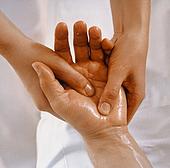Opiates are a class of drugs that slow down the central nervous system. Some opiates are used as pain killers, such as for example morphine and codeine, while others are taken for recreational purposes, such as heroine. Either way, opiate abuse is a serious medical condition, and one that should not be easily brushed aside. It can cause many complications, and can be very serious to your health if left untreated. If you suspect that someone you know is suffering from opiate abuse, there are a few signs that you should be on the look out for. By knowing the signs and symptoms associated with opiate abuse, you can identify the problem early, and hopefully help people get treatment as soon as possible.
Mood Changes
The first thing that you should be on the look out for, and one of the easiest things to recognize, is mood changes. There are several changes in a person’s mood that could be the result of opiate abuse, so if you notice any of these changes in someone you know, it is a good idea to take a further look. According to the Delta Medical Center, the mood changes associated with opiate abuse are: increased anxiety, euphoria, psychosis, depression, improved self-esteem and lowered motivation. While simply having one of these changes in moods is not enough to indicate opiate abuse, you should at least take note of it and begin to look for other signs to confirm your suspicion.
Behavioral Changes
Besides mood changes, opiate abuse can also impact the way a person behaves. For example, if someone you know has been taking opiates, and has then had a problem reducing the amount taken, this is a strong sign of opiate abuse. In addition, you may also notice that a person is taking more opiates than they should be, or that they spend a large amount of time getting, using or recovering from opiates. Lastly, if you notice that a person is neglecting important responsibilities in their life, this is another strong sign of opiate abuse.
Physical Symptoms
Lastly, in addition to changes in their mood and behavior, you should also look to see if the person is suffering from the physical symptoms of opiate abuse. There is a wide range of symptoms associated with opiate abuse, and you will need to be on the lookout for all of them. They include a decreased appetite, more energy, problems sleeping, increased heart rate, among many others. Remember that simply having one of the physical symptoms mentioned is not enough to conclude opiate abuse, as there could be another cause. Most people will display more than one symptom – be it a change in mood, behavior or bodily symptoms – so you will want to be on the lookout for multiple changes.
Withdrawal Symptoms
When someone stops taking opiates after prolonged consumption, their body is likely to go into withdrawal. It is important to notice the symptoms of opiate withdrawal as well, since a person suffering from this will likely need help to get through it. By noticing these symptoms you can assist them in getting additional medical treatment to help them deal with it. These symptoms include nausea, chills, vomiting, anxiety, and muscle tension, among others.
How To Get Help
Dealing with opiate abuse is not pleasant. Whether it is you or someone you know, getting your body to no longer be dependent on opiates is a process, but it is one that must absolutely be taken. Treatment for opiate abuse can include medications to lessen the physical symptoms, along with therapy after the detox to help keep a user from becoming addicted once again. There are also programs known as “rapid detox”, such as the Waismann Method, that claim to help people recover from opiate abuse faster. Whether it is you or someone close to you, you should take the time to research your options when it comes to opiate abuse treatment, and talk with a doctor about the best course of action.
Opiate abuse is a serious condition, and one that should be treated as soon as it is noticed. By being on the lookout for the symptoms mentioned above, you can detect opiate abuse quickly, and hopefully get the help that is needed.




